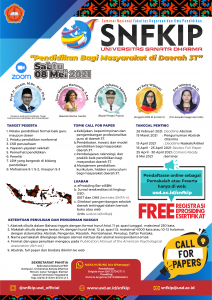Peer Review Process
REVIEW PROCEDURES
InCASST 2023 uses a double-blind review, which means that both the reviewer's and author's identities are concealed throughout the review process. The review process is expected to take one (1) to two (2) weeks. The following are the four main steps of the review process.
- The completed manuscript uploaded by the author(s) to the InCASST website is then assigned by the Section Editor to see the editorial process.
- The editor will invite reviewers to assess and judge the submitted manuscript properly.
- The result of the review will be communicated to the editor for onward transmission to the author(s).
If required, the author(s) will revise the manuscript in light of the reviewers' comments and suggestions and resubmit the manuscript. When the manuscript is finally accepted, the editor will schedule the publication and inform the author(s).
REVIEW POINT
InCASST is committed to publishing innovative and sustainable research results with an open-access peer-reviewed process that mediates the dissemination of academicians, researchers, and practitioners in engineering, science, and technology. InCASST uses a double-blind review, which means that both the reviewer's and author's identities are concealed throughout the review process. The review process is expected to take one (1) to two (2) weeks. The scopes of InCASST are engineering design, manufacturing, energy management, IT for innovation enhancement, and advanced mathematics.
REVIEWERS
InCASST has recruited reputation and professional reviewers from universities and institutions worldwide, such as India, Singapore, Thailand, Japan, etc. InCASST is committed to ensuring the review process is done without conflict of interest and to ensuring the scientific process's rigorous standards by participating in the peer-review system. Reviewers uphold the integrity of the manuscript by identifying invalid research and helping to help prevent ethical breaches by identifying plagiarism, research fraud and other problems by dint of their familiarity with the subject area.
Archive Access Policy
The presentations that make up the current and archived conferences on this site have been made open access and are freely available for viewing, for the benefit of authors and interested readers.
Peer Review Process

The practice of peer review is a critical part of of the modern scientific process. Therefore, all papers that is submitted to the conference follow the peer review process. The type of peer review used by the conference is closed peer review where the reviewers are aware of the authors’ identities but the authors’ are never informed of the reviewers’ identities.

